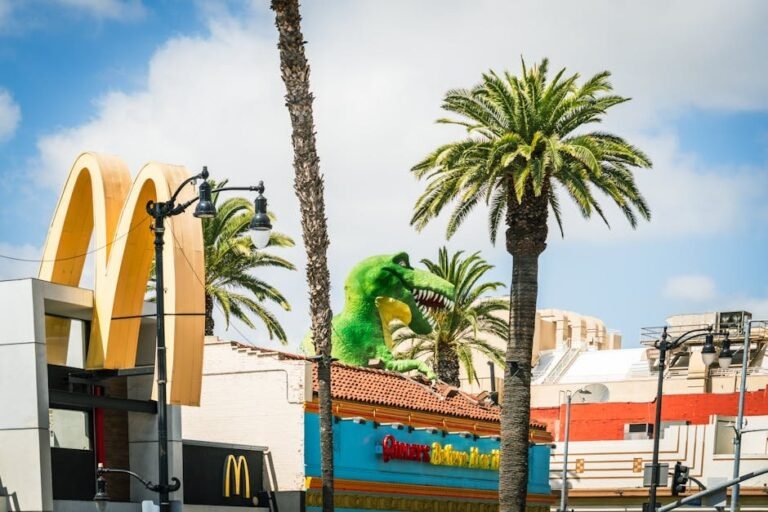In the fast-paced world of technology, ensuring ethical development and deployment of Artificial Intelligence is more crucial than ever. One company at the forefront of this movement is Workday, a leader in enterprise cloud applications for finance and human resources. With a steadfast commitment to Responsible AI practices, Workday is setting a benchmark for how organizations can ethically harness the power of AI. But what exactly does “responsible AI” mean, and how is Workday championing this cause? By exploring five innovative approaches, we can see how Workday integrates ethical considerations into its AI strategies, ensuring not only the efficiency and security of its applications but also transparency and fairness. Dive into these exemplary initiatives to discover how Workday is leading the charge in crafting a future where AI benefits everyone.
1. Workday’s Ethical Framework for AI
Workday Responsible AI initiatives begin with a robust ethical framework designed to guide the development and deployment of Artificial Intelligence within their software solutions. This framework ensures AI technologies are developed with fairness, transparency, and accountability at their core. It is not just about creating algorithms that work efficiently but also ones that respect and uphold human dignity and rights. By prioritizing ethical considerations, Workday aims to prevent the misuse of AI capabilities that could lead to discriminatory practices or data privacy violations, which is crucial in today’s rapidly advancing tech landscape.
The framework emphasizes the importance of continuous assessments and audits of AI systems to identify and rectify any biases that may arise. For instance, regular algorithmic audits are akin to routine health check-ups, ensuring that the AI systems remain aligned with ethical standards over time. This proactive approach underscores Workday’s commitment to creating AI solutions that not only perform well but also align with societal values.
2. Balancing Innovation with Responsibility
As AI technologies evolve, companies like Workday are tasked with balancing innovation with responsibility. The Workday Responsible AI approach ensures that while they push the boundaries of what AI can achieve, they remain grounded in ethical practices. This balance is crucial to maintain trust with their clients and the broader public, who are increasingly concerned about the potential for AI to infringe on privacy or exacerbate existing inequalities.
In practical terms, this means Workday incorporates comprehensive risk assessments into their AI development processes. These assessments evaluate not only the potential benefits but also the risks of new AI features before they are implemented. By doing so, Workday can innovate confidently, knowing that their advancements are responsible and considerate of the wider implications for society and individual rights.
3. Transparency and Trust in AI Systems
Transparency is a cornerstone of the Workday Responsible AI strategy. Workday understands that for AI to be trusted, users need to have a clear understanding of how AI decisions are made. This transparency is achieved by providing detailed insights into the data sources and algorithms used in their AI systems. By demystifying AI processes, Workday empowers users to engage with their technology more confidently and effectively.
An example of this transparency is Workday’s commitment to clear documentation and communication about AI-driven decisions. Imagine a manager using Workday’s AI tools to make hiring decisions; they can access detailed reports explaining how certain candidates were scored and ranked. This level of clarity not only builds trust but also allows for informed decision-making, essential in maintaining ethical standards in AI applications.
4. Continuous Learning and Improvement
Workday Responsible AI doesn’t rest on its laurels; continuous learning and improvement are pivotal to its strategy. The dynamic nature of AI requires ongoing education and adaptation to keep pace with technological advancements and emerging ethical challenges. Workday invests in regular training programs for their teams to stay abreast of the latest developments in AI ethics and best practices.
These training initiatives are comparable to ongoing education in any professional field, ensuring that Workday’s workforce is equipped with the knowledge and skills needed to navigate the complexities of AI responsibly. By fostering a culture of continuous improvement, Workday ensures that their AI systems evolve in a way that remains aligned with ethical standards, ready to meet the demands of tomorrow’s technological landscape.
5. Collaborating for a Responsible AI Future
Finally, Workday recognizes that achieving responsible AI is a collective effort. They actively collaborate with industry peers, academic institutions, and regulatory bodies to shape and uphold standards for ethical AI development. Through these partnerships, Workday contributes to the broader discourse on AI ethics, helping to establish guidelines that benefit not just their clients, but society at large.
This collaborative approach mirrors the community-driven efforts seen in other fields, where shared knowledge and resources lead to more robust and universally beneficial outcomes. By participating in these initiatives, Workday not only strengthens its own Responsible AI practices but also helps lead the charge in creating a more ethical future for AI technology across industries.
Navigating the Future of Responsible AI
As we reflect on Workday’s insightful perspective, it’s clear that embracing Responsible AI practices is not just an option—it’s imperative. Throughout our exploration, we’ve seen how prioritizing ethical frameworks and transparency can mitigate potential risks. Real-world application demands a balance between innovation and caution, ensuring AI enhances rather than undermines human capabilities.
Looking ahead, the path to sustainable AI development requires a shift beyond traditional tech paradigms. By fostering collaboration across industries and disciplines, we can unlock transformative opportunities while safeguarding societal values. As AI continues to evolve, maintaining a vigilant and proactive approach will be key to harnessing its full potential responsibly. The future of AI is indeed promising, provided we steer it with wisdom and foresight.






